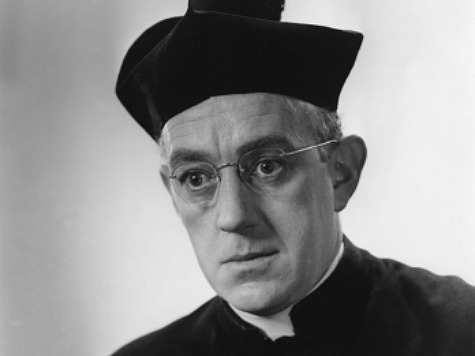Sir Alec Guinness, born 100 years ago today on April 2, 1914 in Marylebone, England, was a star’s star.
While Spencer Tracy, born just three days later in 1900, was ranked his fellow stars’ favorite, Guinness had dramatic gifts rivaling Tracy for which he received numerous professional awards and fervent audience love.
He began his theatrical career in the 1930s, playing in numerous stage classics, as well as an uncredited role as a WWI soldier attending a concert in the film Evensong (1934). All of this early work was fitting preparation for his film career, spanning 60 years, formally beginning in 1946 when he played Herbert Pocket in Great Expectations.
He was off to the races, making film after film–Oliver Twist (1948), in which he played Fagin; Kind Hearts and Coronets (1949), playing multiple D’Ascoyne Family roles (The Duke, The Banker, The Parson, The General, The Admiral); The Lavender Hill Mob (1951), in which he played Holland; The Man in the White Suit (1951), Jim Wormold; and The Ladykillers, Professor Marcus (1955), among other British films and roles.
Hollywood finally snagged him for the role of Prince Albert in The Swan (1955). This laid the groundwork for his selection as Colonel Nicholson in The Bridge on the River Kwai (1957), directed by David Lean, for which he won the Best Actor Oscar. It was one of many Oscar nominations he would receive.
Numerous box office hits followed, including other Lean masterpieces–Lawrence of Arabia (1962), in which he played King Feisal; Doctor Zhivago (1965), Yevgraf; and A Passage to India (1984), Godbole. Other roles included Scrooge (1970) in which he played Jacob Marley’s Ghost; and of course, his stellar performances as Obi-Wan Kenobi in the Star Wars films, among others.
His last film was Mute Witness (1994), in which, fittingly, he played The Reaper (a Mystery Guest Star).There was, of course, more to the man than his acting–a taste of which is conveyed in his poignant faith journey, the dramatic turning point occurring during the filming of Father Brown (1954) when a small French child mistook Guinness for a priest.
That little encounter inspired him to return to his Anglican faith. Soon thereafter, his son Matthew, then just 11, tragically contracted polio and was paralyzed from the waist down. A grief-stricken Guinness began stopping by a little Catholic Church every day, praying to God that if He would let his son recover, he would not stand in the way should he wish to convert to Catholicism, which was his son’s desire.
Matthew did recover, subsequently converting to Catholicism at age 15. Several years later, seeing how happy his son was, Guinness decided to become a Catholic himself and was formally received into the Church on March 24, 1956.
A year later, his wife quietly followed suit while he was away in Sri Lanka filming The Bridge on the River Kwai. She only told him after the fact to his great delight.
Every morning, Guinness recited a verse from Psalm 143, “Cause me to hear your loving kindness in the morning.”
He died on August 5, 2000, this time winning a greater much greater prize–Heaven.
Mary Claire Kendall is currently writing a book about legends of Hollywood, focused on stories of recovery, for publication in 2015.

COMMENTS
Please let us know if you're having issues with commenting.